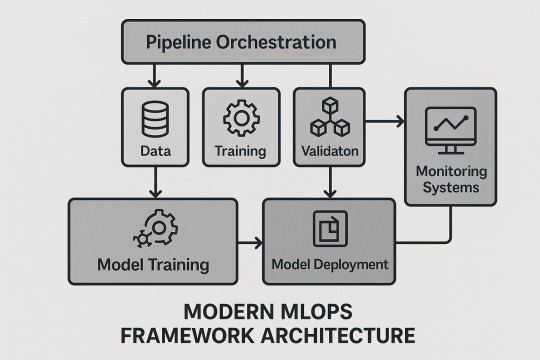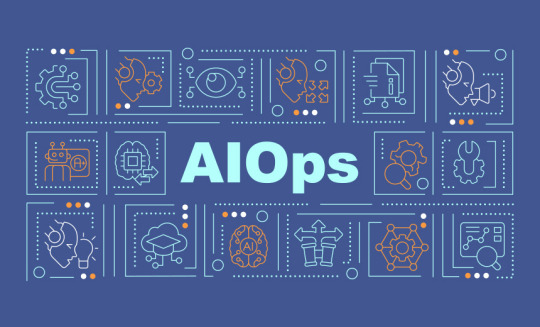#AIOP
Explore tagged Tumblr posts
Text

[ART FIGHT ATTACK]
Aiop for ~sunkobunko !
6 notes
·
View notes
Text


The City of West Hollywood presents 𝘈𝘳𝘵𝘪𝘯𝘖𝘥𝘥𝘗𝘭𝘢𝘤𝘦𝘴 (𝘈𝘪𝘖𝘗) 2025: 𝘝𝘖𝘐𝘊𝘌, a citywide performance art festival Curated by Deborah Oliver, July 25 – 27, 2025, 4:00 – 9:00 p.m. 🎉 I’m thrilled to announce my participation in this year’s edition of AiOP! If you’re on the West Coast, you have THREE chances to catch my work:
FRI 25 JUL → Plummer Park SAT 26 JUL → West Hollywood Park SUN 27 JUL → Sunset Blvd
For the VOICE edition I’ll be re-creating a performance art piece originally conceived in the early 90s in response to the AIDS epidemic, titled CONDOM CLOUD. This reimagined version will be presented for three hours at each location, serving as a powerful reminder that in our current moment SILENCE STILL EQUALS DEATH - maybe more than ever...
0 notes
Text
Il 22 maggio lavoratori in sciopero davanti alla sede Aiop di Torino: contratti fermi da 7 e 13 anni, Regione Piemonte assente e Aiop in trasferta. Scopri di più su Alessandria today.
#AIOP#Aiop Piemonte#Alessandria today#Aris#CCNL Aiop#CCNL Aris#CISL FP#contratti scaduti#contratto RSA#contratto sanità privata#Cottolengo#dignità del lavoro#Don Gnocchi#Elena Chiorino#Fatebenefratelli#Federico Riboldi#FP CGIL#Gheron#Google News#Humanitas#italianewsmedia.com#Koelliker#Korian#Kos Care#Lava#lavoratori in piazza#lavoratori sanità#Maurizio Marrone#mobilitazione sindacale#Pier Carlo
0 notes
Text
WTW VALENTINE'S WEEK - STORGE
Dr. Floriane Achard & Lucille Byrne
In her early twenties, Floriane had a short fling with fellow student Eddie Byrne and birthed their daughter Lucille Byrne when she was 23 years old.
Even though Floriane left Eddie when Lucille was 5 to focus on her career and avoid a relationship she wasn't happy in, Floriane makes sure she sees Lucille as often as possible. Lucille staying with Eddie was a choice they made together when Eddie decided to move to Edinburgh and Floriane decided to stay in London.
Lucille is the one thing Floriane cherishes the most in her life and if she wasn't traveling so much as an anthropologist and archeologist, she would have had Lucille full-time, if it was something Lucille wanted. But when Floriane is back in London she spends as much of her time with Lucille as she can. She loves her daughter, there is no doubt about that. But she shows it, living so far from her and always traveling, through gifts and anecdotes and spending time together doing all those things she can't do as Lucille's mother more regularly.
3 notes
·
View notes
Text
How will AIOps impact digital transformation in 2025?
Earlier businesses relied on traditional IT on-premises systems for smooth operations and performance management. However, with cloud computing and digital transformation, businesses started gaining real-time insights and data from multiple sources.
As a result, managing such big data became more complex for the IT operations team. Hence, to streamline all processes and manage the big data, AIOps tools were introduced.
The integration of advanced technologies into IT operations completely changed the game. It allowed organizations to monitor historical and current data, detect anomalies in real-time, perform predictive analysis, automate tasks, and more.
For More Info click here: https://www.motadata.com/blog/aiops-impact-digital-transformation-in-2025/
1 note
·
View note
Text
2 notes
·
View notes
Text
Become a Certified AIOps Professional and Drive Smart IT Operations with AI
In the era of digital transformation, IT operations need more than traditional tools—they need intelligence. The AIOps Foundation Certification by GSDC empowers professionals to combine artificial intelligence with operations for predictive analytics, automation, and real-time insights.
🚀 Why Choose This Certification?
Master the fundamentals of AIOps and its real-time application
Learn how to integrate AI into IT infrastructure for better visibility
Gain a globally respected AIOps certificate to validate your expertise
Get recognized as a certified AIOps foundation expert
📘 What You’ll Learn: This course introduces you to core AIOps concepts, including data ingestion, correlation, anomaly detection, and event management. Whether you're in DevOps, IT support, or network operations, this AIOps foundation certification prepares you to optimize system performance using intelligent automation.
💼 Who Should Enroll?
IT Professionals and System Engineers
DevOps Engineers and SREs
Professionals seeking a certified AIOps foundation certification
Leaders aiming to become a certified AIOps professional
As more companies shift toward automation and AI, demand for AIOps certification is rising rapidly. By earning the AIOps foundation certificate, you prove your ability to lead modern IT operations powered by data and machine learning.
Whether you’re upgrading your skills or planning your next promotion, the certified AIOps foundation path sets you apart in a competitive landscape.
Join the future of IT. Get your AIOps foundation certification and lead the smart ops movement today.
👉 Learn more about the program and get certified: https://www.gsdcouncil.org/aiops-foundation-certification
#AIOpsCertification #AIOpsFoundation #AIOpsFoundationCertification #CertifiedAIOpsFoundationCertification #AIOpsCertificate #AIOpsFoundationCertificate #CertifiedAIOpsFoundation #CertifiedAIOpsProfessional #ITAutomation #AIOpsTraining #GSDCCertified
#aiops certification#aiops foundation#aiops foundation certification#certified aiops foundation certification#aiops certificate#aiops foundation certificate#certified aiops foundation#certified aiops Professional
0 notes
Text
#AIOps#TestAndMeasurement#ModularHardware#CloudComputing#Semiconductor#Aerospace#Innovation#ElectronicsIndia#powerelectronics#powermanagement#powersemiconductor
0 notes
Text
Scaling Machine Learning Operations with Modern MLOps Frameworks
The rise of business-critical AI demands sophisticated operational frameworks. Modern end to end machine learning pipeline frameworks combine ML best practices with DevOps, enabling scalable, reliable, and collaborative operations.

MLOps Framework Architecture
Experiment management and artifact tracking
Model registry and approval workflows
Pipeline orchestration and workflow management
Advanced Automation Strategies
Continuous integration and testing for ML
Automated retraining and rollback capabilities
Multi-stage validation and environment consistency
Enterprise-Scale Infrastructure
Kubernetes-based and serverless ML platforms
Distributed training and inference systems
Multi-cloud and hybrid cloud orchestration
Monitoring and Observability
Multi-dimensional monitoring and predictive alerting
Root cause analysis and distributed tracing
Advanced drift and business impact analytics
Collaboration and Governance
Role-based collaboration and cross-functional workflows
Automated compliance and audit trails
Policy enforcement and risk management
Technology Stack Integration
Kubeflow, MLflow, Weights & Biases, Apache Airflow
API-first and microservices architectures
AutoML, edge computing, federated learning
Conclusion
Comprehensive end to end machine learning pipeline frameworks are the foundation for sustainable, scalable AI. Investing in MLOps capabilities ensures your organization can innovate, deploy, and scale machine learning with confidence and agility.
0 notes
Text
🔍 Proactive Problem Management: End IT Firefighting with GenAI

Are constant incidents slowing down your IT teams? In 2025, reactive support isn’t enough — GenAI-powered proactive problem management helps predict and prevent incidents before they happen.
✅ Recognize patterns in historical data ✅ Automate root cause analysis and knowledge creation ✅ Reduce downtime and boost user satisfaction
🚀 Discover how leading enterprises are transforming ITSM from reactive to proactive: 👉 Read the full blog here
1 note
·
View note
Text

Is IT Downtime Killing Your Business Productivity?
Manual monitoring is outdated. Embrace intelligent automation and keep yourself ahead of the game. Connect with us now to supercharge your IT operations! To connect with us: https://shorturl.at/YSrWI
0 notes
Text
INITIAL IDEAS

Above photo by Sami Emory for VICE.com review of Art AIDS America, Alphawood Foundation, Chicago 2017.
Here are some initial ideas I want to put out into the ether.
The laundry trolley (in the image below), or something similar, will be perfect for a mobile condom inflation station to cart the helium and other materials while providing a place to hang the ribbons. Brigitte Smeza will be assisting me with this as a performer, assistant, and occasional documenter.
Also, the step stool is shown because I'm interested in getting a 5XL dress and standing stationary on the stool, bending down to gift the condom balloons to passers by - my dress falling all the way down to the ground. This elevated position will be a striking image.

I'm thinking of putting small clips on the ends of the ribbon. This would allow for multiple forms of attachment and have more substance than just a knot. It might be too labor intensive or too expensive, but it would be great. They could be clipped anywhere on my costume. I could also clip them to passersby (with their permission, of course!). In the last iteration of this piece the ribbons were around my neck - I like this - but perhaps they're attached somewhere else this time...or multiple places...
Know that I will be making the ribbons shorter than in the past - only about three feet so they are more manageable for people to take with them and I'll have a little more clearance above me (especially for the street performance where overhanging signs and branches could be a problem). So the cloud will float just above my head.
I'm not sure what the weather will be like, but I'm sensitive to sun and heat. I'm looking at dresses that are %100 Linen (preferred) or maybe cotton. But loose and cool. I'm most attracted to the sleeveless ones that simply drape from the shoulders, but then the shoulders are bare. I found some long sleeve options, too. I'll get a variety to test.
Cage skirts could be used to hold inflated condoms and they would show! This will be a great image!! I imagine wearing a big cage hoop skirt, red or white depending on the base color - to contrast, and inside it will be filled with inflated condoms...holding me up...I found a small/short one for Brigitte, perhaps a contrasting color.

I'd like to dye the white dresses hombré from deep black/red at the bottom through bright red to white to white at the top - as if we walked through blood and mud. BUT somehow I want it to look more chic than halloween. A good dye job will help - a quality hombré - but maybe some sparkle or velvet or something to contrast/elevate it. We'll see...it might be too much.

Side note: I do see Brigitte's role as an acolyte in this performance but admit that I'm not totally comfortable with the hierarchical imagery and want to go on record as knowing it's not great. But I'm still going forward and will try to find opportunities to offset that power dynamic.
We'll also need quality sunglasses, a ton of sunscreen, perhaps a light scarf or poncho (for the neck/arms), and back-up hats or parasols. AND water of course!
0 notes
Text
Logista Pharma: accordo con Copag SpA per potenziare l’attività di distribuzione farmaceutica nel settore ospedaliero
La partnership consolida la gestione di tutti i servizi di trasporto, distribuzione e consegna di farmaci, dispositivi medici e strumentazioni per sala operatoria alle strutture ospedaliere in Italia Roma, 3 aprile 2025 Logista, uno dei principali operatori logistici europei, rafforza la sua posizione nella distribuzione farmaceutica ospedaliera grazie alla partnership tra Copag e Logista…
#accordo Logista Copag#ACOP#AIOP#Aris#Copag SpA#dispositivi medici#distribuzione dispositivi medici#distribuzione farmaceutica#distribuzione farmaci#distribuzione integrata#distribuzione integrata sanità#distribuzione vaccini#efficienza sanitaria#farmaci e-commerce#farmaci ospedale#farmaci ospedalieri#healthcare logistics#Logista comunicazione.#Logista Italia#Logista Pharma#logistica farmaceutica Italia#logistica farmaci#logistica ospedaliera#logistica sanitaria#magazzino healthcare#Marco Miraglia#Maria Pilar Colás Castellote#medicina ospedaliera#Operatori sanitari#ospedali italiani
0 notes
Text
AIOps for DevOps. This is a phrase that you’ll hear a lot often in the coming years. Leveraging AIOps is becoming an emerging practice for DevOps. And why not? After all, AIOps offers so many benefits for DevOps, making it a must have for every business.
1 note
·
View note
Text
Why AIOps Platform Development Is Critical for Modern IT Operations?
In today's rapidly evolving digital world, modern IT operations are more complex than ever. With the proliferation of cloud-native applications, distributed systems, and hybrid infrastructure models, the traditional ways of managing IT systems are proving insufficient. Enter AIOps — Artificial Intelligence for IT Operations — a transformative approach that leverages machine learning, big data, and analytics to automate and enhance IT operations.

In this blog, we'll explore why AIOps platform development is not just beneficial but critical for modern IT operations, how it transforms incident management, and what organizations should consider when building or adopting such platforms.
The Evolution of IT Operations
Traditional IT operations relied heavily on manual intervention, rule-based monitoring, and reactive problem-solving. As systems grew in complexity and scale, IT teams found themselves overwhelmed by alerts, slow in diagnosing root causes, and inefficient in resolving incidents.
Today’s IT environments include:
Hybrid cloud infrastructure
Microservices and containerized applications
Real-time data pipelines
Continuous integration and deployment (CI/CD)
This complexity has led to:
Alert fatigue due to an overwhelming volume of monitoring signals
Delayed incident resolution from lack of visibility and contextual insights
Increased downtime and degraded customer experience
This is where AIOps platforms come into play.
What Is AIOps?
AIOps (Artificial Intelligence for IT Operations) is a methodology that applies artificial intelligence (AI) and machine learning (ML) to enhance and automate IT operational processes.
An AIOps platform typically offers:
Real-time monitoring and analytics
Anomaly detection
Root cause analysis
Predictive insights
Automated remediation and orchestration
By ingesting vast amounts of structured and unstructured data from multiple sources (logs, metrics, events, traces, etc.), AIOps platforms can provide holistic visibility, reduce noise, and empower IT teams to focus on strategic initiatives rather than reactive firefighting.
Why AIOps Platform Development Is Critical
1. Managing Scale and Complexity
Modern IT infrastructures are dynamic, with components spinning up and down in real time. Traditional monitoring tools can't cope with this level of volatility. AIOps platforms are designed to ingest and process large-scale data in real time, adapting to changing environments with minimal manual input.
2. Reducing Alert Fatigue
AIOps uses intelligent noise reduction techniques such as event correlation and clustering to cut through the noise. Instead of bombarding IT teams with thousands of alerts, an AIOps system can prioritize and group related incidents, reducing false positives and highlighting what's truly important.
3. Accelerating Root Cause Analysis
With ML algorithms, AIOps platforms can automatically trace issues to their root cause, analyzing patterns and anomalies across multiple data sources. This reduces Mean Time to Detect (MTTD) and Mean Time to Resolve (MTTR), which are key performance indicators for IT operations.
4. Predicting and Preventing Incidents
One of the key strengths of AIOps is its predictive capability. By identifying patterns that precede failures, AIOps can proactively warn teams before issues impact end-users. Predictive analytics can also forecast capacity issues and performance degradation, enabling proactive optimization.
5. Driving Automation and Remediation
AIOps platforms don’t just detect problems — they can also resolve them autonomously. Integrating with orchestration tools like Ansible, Puppet, or Kubernetes, an AIOps solution can trigger self-healing workflows or automated scripts, reducing human intervention and improving response times.
6. Supporting DevOps and SRE Practices
As organizations adopt DevOps and Site Reliability Engineering (SRE), AIOps provides the real-time insights and automation required to manage CI/CD pipelines, ensure system reliability, and enable faster deployments without compromising stability.
7. Enhancing Observability
Observability — the ability to understand what's happening inside a system based on outputs like logs, metrics, and traces — is foundational to modern IT. AIOps platforms extend observability by correlating disparate data, applying context, and providing intelligent visualizations that guide better decision-making.
Key Capabilities of a Robust AIOps Platform
When developing or evaluating an AIOps platform, organizations should prioritize the following features:
Data Integration: Ability to ingest data from monitoring tools, cloud platforms, log aggregators, and custom sources.
Real-time Analytics: Stream processing and in-memory analytics to provide immediate insights.
Machine Learning: Supervised and unsupervised learning to detect anomalies, predict issues, and learn from operational history.
Event Correlation: Grouping and contextualizing events from across the stack.
Visualization Dashboards: Unified views with drill-down capabilities for root cause exploration.
Workflow Automation: Integration with ITSM tools and automation platforms for closed-loop remediation.
Scalability: Cloud-native architecture that can scale horizontally as the environment grows.
AIOps in Action: Real-World Use Cases
Let’s look at how companies across industries are leveraging AIOps to improve their operations:
E-commerce: A major retailer uses AIOps to monitor application health across multiple regions. The platform predicts traffic spikes, balances load, and automatically scales resources — all in real time.
Financial Services: A global bank uses AIOps to reduce fraud detection time by correlating transactional logs with infrastructure anomalies.
Healthcare: A hospital network deploys AIOps to ensure uptime for mission-critical systems like electronic medical records (EMRs), detecting anomalies before patient care is affected.
Future of AIOps: What Lies Ahead?
As AIOps matures, we can expect deeper integration with adjacent technologies:
Generative AI for Incident Resolution: Intelligent agents that recommend fixes, draft playbooks, or even explain anomalies in plain language.
Edge AI for Distributed Systems: Bringing AI-driven observability to edge devices and IoT environments.
Conversational AIOps: Integrating with collaboration tools like Slack, Microsoft Teams, or voice assistants to simplify access to insights.
Continuous Learning Systems: AIOps platforms that evolve autonomously, refining their models as they process more data.
The synergy between AI, automation, and human expertise will define the next generation of resilient, scalable, and intelligent IT operations.
Conclusion
The shift toward AIOps is not just a trend — it's a necessity for businesses aiming to remain competitive and resilient in an increasingly digital-first world. As IT infrastructures become more dynamic, distributed, and data-intensive, the ability to respond in real-time, detect issues before they escalate, and automate responses is mission-critical.
Developing an AIOps platform isn’t about replacing humans with machines — it’s about amplifying human capabilities with intelligent, data-driven automation. Organizations that invest in AIOps today will be better equipped to handle the challenges of tomorrow’s IT landscape, ensuring performance, reliability, and innovation at scale.
0 notes
Text
Master AIOps with GSDC’s Certified AIOps Foundation Certification
As modern IT infrastructure becomes increasingly complex, businesses are turning to Artificial Intelligence for IT Operations (AIOps) to automate and optimize performance. GSDC’s AIOps Foundation Certification equips IT professionals with the skills to deploy AI-driven solutions that enhance observability, incident response, and root cause analysis.
📘 Why Get AIOps Certified? The AIOps certification offers foundational knowledge in merging machine learning, big data, and automation to streamline IT operations. Whether you’re a sysadmin, DevOps engineer, or SRE, the AIOps foundation course prepares you to intelligently manage data noise, reduce MTTR, and improve uptime.
🎯 Key Learning Areas:
AIOps architecture and its role in modern IT
Machine learning models used in AIOps pipelines
Practical implementation of predictive and reactive operations
Core principles behind automation in monitoring and alerting
💼 Who Should Enroll?
IT and DevOps professionals
System reliability engineers
Cloud and infrastructure managers
Anyone seeking a certified AIOps Foundation certification
Whether you're pursuing an AIOps certificate to stay competitive or aiming to become a certified AIOps Professional, this course delivers practical, vendor-neutral skills you can apply immediately.
GSDC’s AIOps foundation certificate aligns with industry needs, ensuring that professionals can confidently implement scalable and intelligent IT operations across hybrid environments.
The certified AIOps Foundation designation adds a high-value credential to your tech portfolio pening doors to roles in AI-integrated operations and intelligent automation.
👉 Learn more about the program and get certified: https://www.gsdcouncil.org/aiops-foundation-certification
#AIOpsCertification #AIOpsFoundation #AIOpsFoundationCertification #CertifiedAIOpsFoundationCertification #AIOpsCertificate #AIOpsFoundationCertificate #CertifiedAIOpsFoundation #CertifiedAIOpsProfessional #GSDCCertification #AIInITOps #AutomationInIT
#aiops certification#aiops foundation#aiops foundation certification#certified aiops foundation certification#aiops certificate#aiops foundation certificate#certified aiops foundation#certified aiops Professional
0 notes